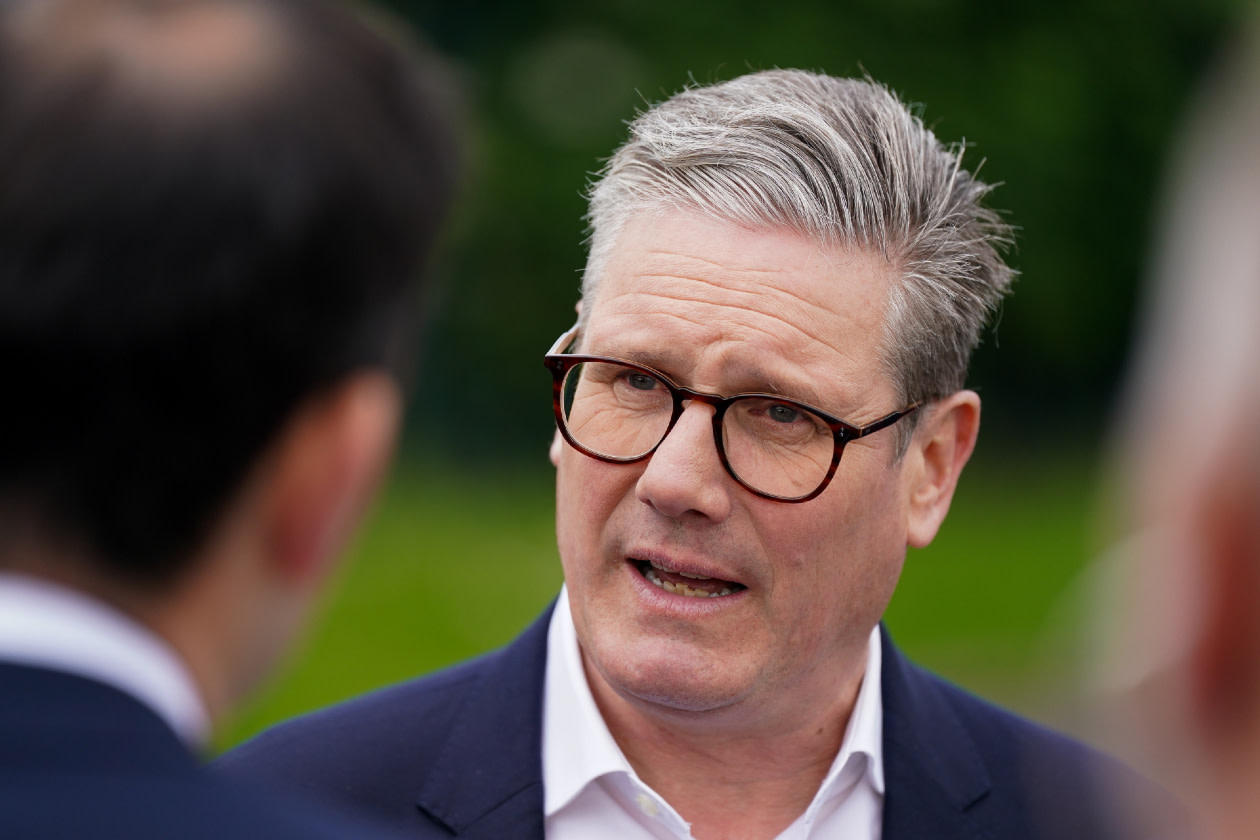Sir Keir Starmer is under mounting pressure to boost defence spending ahead of a crucial showdown with Donald Trump over Ukraine.
The prime minister travels to Washington next week as the only major UK party leader who has not backed calls to hike the defence budget to 2.5 percent of Britain’s GDP by 2030.
And, with the PM hoping to impress upon the US president the importance of his ongoing support after any peace deal in Ukraine, he faces the task of showing Britain and other European nations are serious about their own defence and not over reliant on the US.
Sir Keir has promised a pathway towards Britain spending 2.5 percent of its GDP, up from 2.3 percent now, on defence, though he has not guaranteed the benchmark will be met before 2030.
Sir Ed Davey has piled pressure on the PM, becoming the latest political leader to call for Sir Keir to hike spending as soon as possible to the 2.5 percent mark, joining Kemi Badenoch and Nigel Farage in supporting a boost.
“Donald Trump’s stitch-up with Putin amounts to a betrayal of Ukraine, the UK and all our allies. It is clear: we are living in a new and dangerous world. We must respond,” the Liberal Democrat leader told The Times.
Meeting the target would cost around £6 billion per year, and the government is wary of relying on tax hikes or spending cuts to find the extra cash.
But on Thursday Ms Reeves hinted at cuts to fund the boost, warning that it would require “difficult choices”.
The chancellor said: “Recognising the priority of defence spending in the world that we live in today means that we will have to make difficult choices so that we can spend that money that is needed to keep our country safe.
“I am absolutely committed to spending 2.5 percent of GDP on defence. I am really clear that a strong economy depends on strong defences and our national security being protected. So we will set out that pathway to 2.5 percent of GDP.
“We’ll do it in a proper way, but no one should be in any doubt about my commitment to spend 2.5 percent of GDP on defence.”
One option being looked at is freezing income tax thresholds beyond 2028, a stealth tax that would drag taxpayers into higher tax bands due to inflation, which Ms Reeves could justify on the grounds of an increasingly dangerous world, The Times reported.
In a blow to Ms Reeves and Sir Keir, military chiefs have told the PM the 2.5 percent target should be reached this decade before ramping up to 3 percent in the 2030s, Bloomberg reported.
Sir Keir is planning to use his Washington trip to present Mr Trump with a peacekeeping plan to send fewer than 30,000 European troops to Ukraine.
The “reassurance force”, an Anglo-French strategy designed by British and French officials, was presented at an emergency meeting in Paris earlier this week, according to The Telegraph.
Mr Trump has ruled out the US playing a part in any peacekeeping operation in Ukraine after the war, despite Sir Keir’s calls for the Americans to provide a “backstop” to deter Russia from attacking again.
Meanwhile the former head of Nato general Sir Richard Shirreff has said Britain should bring back conscription for around 30,000 Britons a year and prepare for war with Russia.
The ex-Deputy Supreme Allied Commander Europe of Nato called in the i paper on European powers to arm Kyiv to defeat Vladimir Putin on the battlefield before any peacekeeping force is deployed.
And he said Britain should boost its army to 100,000 through conscription and bolster air defence systems protecting major cities including London, Manchester and Edinburgh.
This article was written by Archie Mitchell from The Independent and was legally licensed through the DiveMarketplace by Industry Dive. Please direct all licensing questions to legal@industrydive.com.
(Photo by Ian Forsyth/Getty Images)

